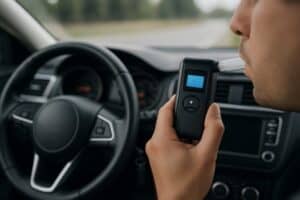How Accurate Are Alcohol Interlock Devices?
Alcohol interlock devices have become an integral part of road safety measures across the globe. Designed to restrict vehicle operation when a driver has a measurable amount of alcohol in their system, these devices serve as an immediate preventative measure against drink-driving. For those looking to comply with legal requirements or enhance personal safety, searching for interlock device installation near me is often the first step. This article will explore the precision and reliability of these critical safety tools, evaluating their role in today’s traffic systems.
Understanding Alcohol Interlock Device Functionality
Interlock devices, commonly installed in the vehicles of those convicted of drink-driving offences, require the driver to give a breath sample before the ignition can be started. The core purpose of these devices is to assess the blood alcohol concentration (BAC) level of the user and ensure it is below the preset limit, which varies depending on local regulations.
The use of an interlock device hinges on its ability to accurately and effectively detect alcohol levels. Typically, when a driver provides a breath sample, the device analyses it using fuel cell technology. This technology is renowned for its precision in detecting alcohol vapours in the breath and translating that detection into an electrical current, which then determines whether the vehicle can start.
Calibration and Maintenance: Key to Accuracy
For an Interlock installation, meticulous calibration is necessary to establish a baseline for accuracy. Proper calibration means the device is finely tuned to detect specific alcohol levels with minimal error margin. Consequently, regular calibration, as stipulated by the manufacturer, is essential to maintaining the device’s accuracy.
Furthermore, upkeep and routine maintenance are crucial in ensuring that the alcohol interlock device functions correctly throughout its usage. Manufacturers recommend specific intervals for servicing and recalibration, vital for preserving the device’s sensitivity and specificity.
Environmental Factors Affecting Accuracy
While alcohol interlock devices are engineered for high accuracy, certain environmental factors can impact their performance. Temperature extremes, both hot and cold, might affect the device’s reliable reading. Another environmental factor is the presence of substances that can produce false positives, such as mouthwash or certain medications with alcohol content.
Device manufacturers often incorporate features to mitigate these potential issues. For example, some devices require re-tests at random intervals during a journey, which reduces the risk of an initial false negative caused by a residual substance in the mouth.
Legal and Testing Standards for Interlock Devices
To ensure dependability, alcohol interlock devices are subject to rigorous legal and testing standards. Countries often have specific regulations that dictate the level of accuracy and sensitivity that the devices must meet. These standards are frequently based on scientific research and statistical data to ensure a high level of protection for all road users.
In many jurisdictions, interlock devices must pass certification processes where they are tested against a range of controlled alcohol concentrations. Only devices that can consistently provide accurate readings within the defined margins are approved for use.
Interlock Device Limitations and False Readings
Though highly accurate, no alcohol detection device is infallible. Users must understand that certain foods, drinks, and other substances can lead to inaccurate readings if consumed immediately before a test. Interlock devices usually have a set “lockout” time that prevents the vehicle from starting after a failed test, giving time for any mouth alcohol to dissipate and for the driver to retest.
A crucial aspect to note is that these devices are designed to detect the presence of alcohol in the breath sample, not to measure impairment levels precisely. As with all machines, there is always a small chance of a false reading, either positive or negative. Manufacturers strive to minimise these occurrences through advanced technology and regular updates to device software.
The Evolution of Technology for Greater Accuracy
As technology evolves, the accuracy of alcohol detection devices is on an upward trend. Manufacturers continually refine their algorithms and sensor technology, leading to improved detection rates, faster analysis times, and reduced chances of false readings. This evolution is crucial for interlock devices as they become more integrated into the fight against drink-driving.
Locating Reputable Interlock Installation Services
Finding a reliable provider for interlock device installation near me is paramount for ensuring the effectiveness of the device. A professional service will have extensive knowledge of the latest interlock technology and will provide a smooth installation process that aligns with legal requirements.
It’s highly recommended to choose a service that offers thorough training on using the interlock device and provides clear guidelines on maintaining it. Professional installation centres typically offer ongoing support and can assist with any troubleshooting, ensuring the device remains an integral and functional tool in promoting road safety.
Conclusion
Alcohol interlock devices hold a critical position in safeguarding public roadways by preventing impaired driving. Their dependability is a testament to the advanced technology that underpins modern alcohol detection devices. With the right maintenance and understanding of their functionalities and limitations, these devices offer an effective deterrent to potential drink-drivers.
In order to maintain public confidence in these devices, continuous technological advancements and rigorous adherence to maintenance schedules are required. As accuracy levels climb and the technology develops, so does the promise of safer roads and reduced incidents related to alcohol-impaired driving.


